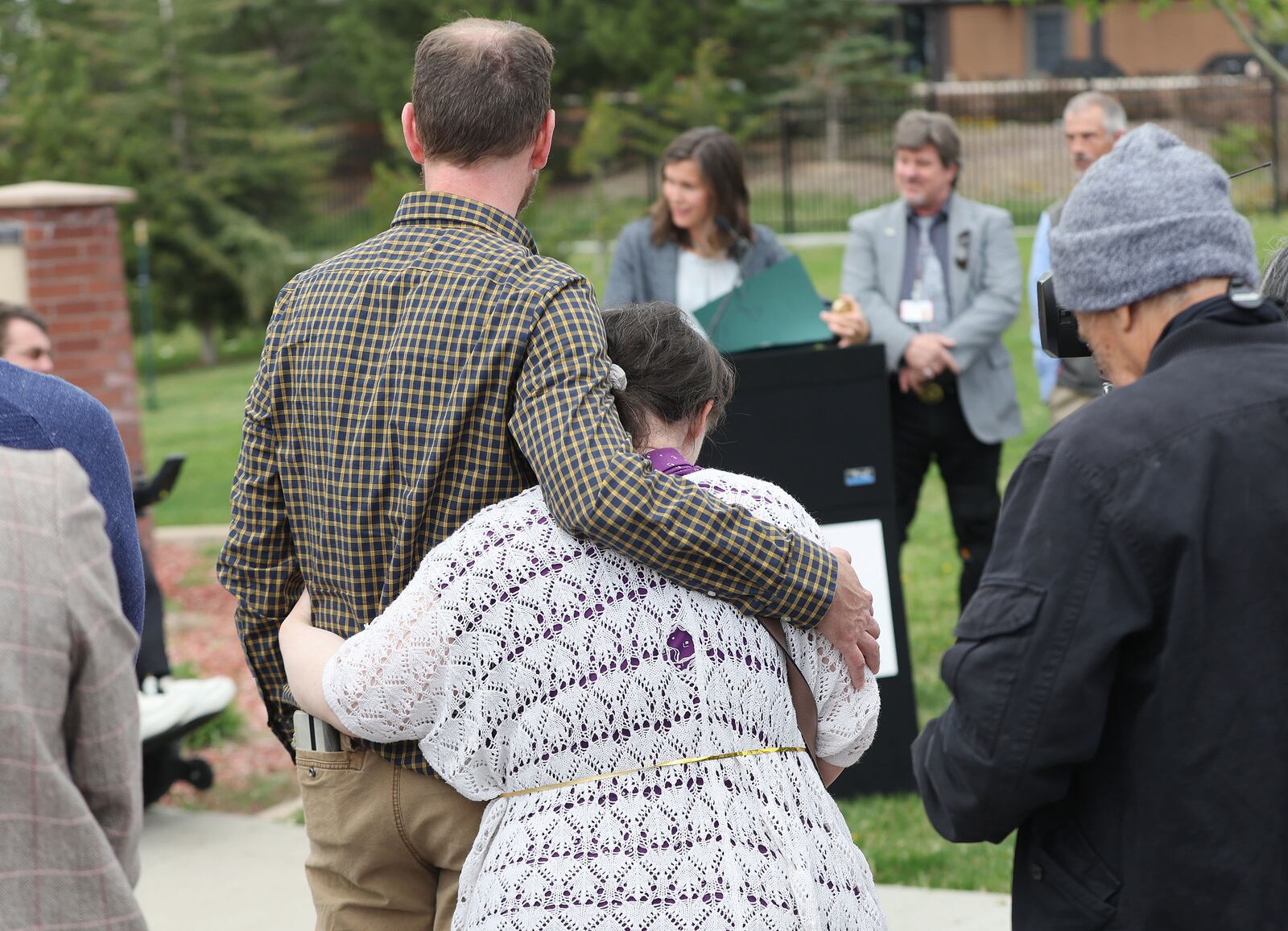Soon after veteran David Ware moved from Florida into an apartment in Salt Lake City in 2014, he found himself homeless and sleeping on a bench downtown in the summer heat.
"It's funny, when you've got everything you own in a bag, where do you start at? You've got to walk for blocks or miles to find a restroom, that's where I was at," Ware said.
But a Good Samaritan literally picked him up and carried him to the nearby Rescue Mission of Salt Lake, Ware recalled. He was then taken to 4th Street Clinic, where he says he received treatment for ailments including pneumonia.
He said he hadn't known he could find assistance through his military benefits. The clinic restored him to health, but the help didn't end there. Another veteran got him approved for an apartment with a voucher, Ware said.
Without the help, Ware, 63, believes he wouldn't be alive today. Now, he owns his own home, has employment and has since gotten married.
"I couldn't be and wouldn't be alive if it wasn't for my caseworker," he said.
Stories such as Ware's are what First Step House aims to accomplish. The program, a partnership between the Housing Authority of Salt Lake City, the Salt Lake Veterans Association medical center, and First Step House, provides transitional housing as a bridge to permanent housing.
The program is available for veterans with disabilities in the area. First Step House typically serves those with mental health disabilities, but it's common for veterans to also face physical disabilities at the same time, some of which are visible and some that aren't, said Shawn McMillen, executive director of First Step House, during a news conference with advocates and city officials at the facility on Wednesday.
The group met to shine a light on the need for fair housing, particularly for those with disabilities. Mayor Erin Mendenhall declared April as Fair Housing Month in an effort to advance the city's and advocates' efforts.
"The reality is, in this really tight rental market, even veterans, a group we all agree should never be homeless, struggle to find housing in our community," McMillen said.
Veterans with mental health difficulties sometimes have criminal histories, which makes it even more difficult to get approved for housing. The community needs landlords "elsewhere in the community to open their doors — to open their minds — to individuals that have struggled at one point in their life," he said.
He asked landlords to reach out to city and community homeless advocates if they are interested in helping.
"We are dedicated, really, that's what drives us, is this dedication to creating inclusive housing — not just housing that's accessible but housing that's welcoming, that feels like home and meets the needs of individuals as they are," Mendenhall said.
She said the city is committed to that idea in business, entertainment and recreation.
"No matter who you are, there's a place for you here, and we are dedicated to making sure of it," the mayor said.
Andrew Riggle, with the Disability Law Center, said the organization receives about 4,000 phone calls per year from people looking for help to advocate for their rights or access to programs and services to help them live "as independently as possible."
The American Disabilities Act has "loopholes," he said, and only requires businesses that opened after 1991 to be accessible to those with disabilities, and apartments constructed after 1990. The standards do not apply to single-family homes, townhomes, condos and buildings with fewer than four units, he said.
"This limits the supply of accessible housing," Riggle said.
He said finding a roll-in shower is "like finding a needle in a haystack." But leasing agents can rent an accessible unit "to the first person through the door" whether or not they need such features, Riggle said.
Property managers are also sometimes asking for a rate higher than usual "just to get in the door," he said.
This year, the city is putting an emphasis on fair housing for those with disabilities and the protections for them, Mendenhall said.
Accessibility plays a part in all city departments including building permitting, code enforcement, web design and events hosted by the city. The city's housing stability division improved the homes of 76 low-income households with disabilities to make them more livable, according to the mayor, and a new city commission is working on fair housing issues.
"The need that we have to uphold ADA accommodations isn't limited to housing, of course," she said, emphasizing the importance of ensuring compliance with businesses to make the community accessible to all.
